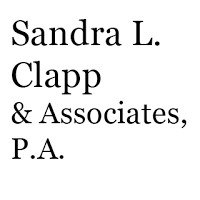Best Licensing Lawyers in Idaho
Share your needs with us, get contacted by law firms.
Free. Takes 2 min.
Or refine your search by selecting a city:
List of the best lawyers in Idaho, United States
United States Licensing Legal Questions answered by Lawyers
Browse our 1 legal question about Licensing in United States and read the lawyer answers, or ask your own questions for free.
- How do I legally protect my idea before selling or licensing it to a company?
- I have a makeup product idea that I want to sell or license, not the product itself. It is influenced by a product that was recently launched. Therefore, I want to sell/license to the company that launched said product. After some research, I contacted a patent attorney who explained that... Read more →
-
Lawyer answer by P.O OHIKHENA & Co
Good day,A patent will not be applicable since it's still an idea. You can go into an MOU(Memorandum of understanding) with the said company and also an NDA.You can contact me for my insight. Visit our profile and send us...
Read full answer
About Licensing Law in Idaho, United States
Licensing law in Idaho covers the rules and regulations that require individuals or businesses to obtain permission from state or local authorities in order to conduct certain activities or professions. This can involve professional licensing, such as for doctors, lawyers, real estate agents, and contractors, as well as business or operational licensing for restaurants, retailers, and other entities. The purpose of licensing is to protect the public by ensuring that licensed persons or businesses meet minimum standards of competency, training, or safety as established by Idaho law.
Why You May Need a Lawyer
Navigating the licensing process in Idaho can be complex, and there are a variety of situations where legal advice or representation may be crucial. You may need a lawyer if you are applying for a new license and want to ensure your application is complete and accurate, if you are facing denial or revocation of your existing license, or if you are dealing with an investigation or disciplinary action by a regulatory board. Lawyers can also help interpret rules, respond to complaints, appeal adverse decisions, and ensure compliance with all state and local licensing requirements. Legal support is especially helpful when stakes are high and your livelihood or business is on the line.
Local Laws Overview
Idaho's licensing framework is shaped by a mix of state statutes, administrative rules, and local ordinances, depending on the profession or business in question. State boards such as the Idaho Board of Medicine, Idaho State Bar, or Idaho Bureau of Occupational Licenses oversee credentialing for many professions. For businesses, the Idaho State Tax Commission and local city or county clerks often handle business licensing and permits. Requirements differ widely depending on the type of activity, including application procedures, educational and testing prerequisites, fees, ongoing renewal and continuing education mandates, and disciplinary procedures. Noncompliance can result in fines, suspension, or criminal penalties as laid out in the Idaho Code and relevant administrative rules.
Frequently Asked Questions
What types of activities or professions require a license in Idaho?
Many occupations such as doctors, nurses, teachers, contractors, real estate agents, cosmetologists, and lawyers require a state license. Additionally, businesses commonly need permits for activities such as food service, child care, retail sales, and liquor sales.
How do I apply for a professional license in Idaho?
Most professional licenses require submitting an application to the relevant state board, providing proof of education and experience, passing an examination, and paying application fees. Each profession has its own specific process and requirements.
Can my application for a license be denied?
Yes, applications can be denied for reasons such as incomplete forms, lack of qualifications, failure to pass background checks, or disciplinary actions in other states. You have the right to appeal a denial in most cases.
What should I do if my license is revoked or suspended?
If your license is revoked or suspended, you may have legal options to appeal or request a hearing. Consulting with an attorney experienced in Idaho licensing law is recommended to protect your rights and explore your options.
Are there felony or criminal history restrictions for licensing?
Many Idaho licensing boards review criminal backgrounds. Some offenses may automatically disqualify an applicant, while others are considered on a case-by-case basis depending on the profession and offense.
What role do cities and counties play in licensing?
Local governments often require separate business licenses and permits for activities conducted within their boundaries, especially for food service, retail establishments, and special events. These are in addition to state requirements.
How do I renew my license in Idaho?
Renewal processes vary but often include submitting a renewal application, paying fees, and in some cases, proving completion of continuing education requirements. Failing to renew on time can result in late fees or the need to reapply.
What happens if I operate without the required license?
Operating without a required license is illegal in Idaho and can result in civil penalties, fines, business closure, and even criminal charges in some instances.
How can I find out which licenses my business needs?
The Idaho Secretary of State and the Idaho State Tax Commission provide resources and checklists to help new businesses determine which permits and licenses are necessary based on business type and location.
Can an attorney help with a license application or appeal?
Absolutely. An attorney can help ensure your application is complete and accurate, represent you in hearings, handle appeals, and provide guidance on compliance issues to protect your interests throughout the licensing process.
Additional Resources
Individuals seeking more information or help in licensing matters in Idaho can consult the following resources:
- Idaho Bureau of Occupational Licenses
- Idaho Secretary of State
- Idaho State Tax Commission
- Idaho Board of Medicine
- Local city and county clerk offices
- Idaho State Bar Lawyer Referral Service
- Idaho Department of Health and Welfare (for health-related licensing)
Next Steps
If you need legal assistance with licensing in Idaho, begin by gathering all relevant documents such as your application, correspondence with authorities, and any denial or disciplinary notices. Consider reaching out to a qualified Idaho attorney experienced in licensing law to discuss your situation. You can use the Idaho State Bar Lawyer Referral Service or contact local legal aid organizations if cost is a concern. Carefully review all application requirements and deadlines, and do not hesitate to exercise your right to appeal if you believe a mistake has occurred. Taking prompt and informed action will help protect your rights and support a successful resolution to your licensing matter.
Lawzana helps you find the best lawyers and law firms in Idaho through a curated and pre-screened list of qualified legal professionals. Our platform offers rankings and detailed profiles of attorneys and law firms, allowing you to compare based on practice areas, including Licensing, experience, and client feedback.
Each profile includes a description of the firm's areas of practice, client reviews, team members and partners, year of establishment, spoken languages, office locations, contact information, social media presence, and any published articles or resources. Most firms on our platform speak English and are experienced in both local and international legal matters.
Get a quote from top-rated law firms in Idaho, United States — quickly, securely, and without unnecessary hassle.
Disclaimer:
The information provided on this page is for general informational purposes only and does not constitute legal advice. While we strive to ensure the accuracy and relevance of the content, legal information may change over time, and interpretations of the law can vary. You should always consult with a qualified legal professional for advice specific to your situation.
We disclaim all liability for actions taken or not taken based on the content of this page. If you believe any information is incorrect or outdated, please contact us, and we will review and update it where appropriate.
Browse licensing law firms by city in Idaho
Refine your search by selecting a city.











